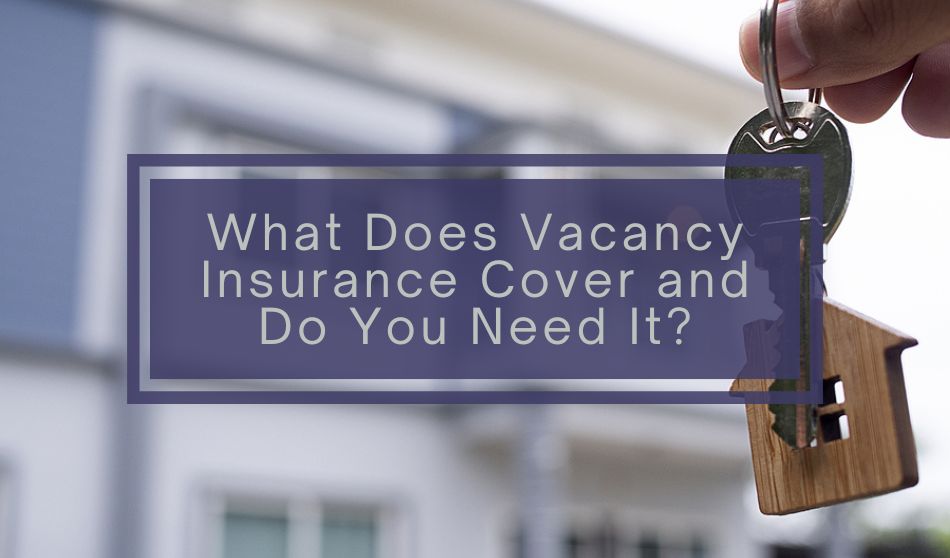
Vacancy insurance covers a home with no one living in it that your regular insurance might not cover. If you are an investor or landlord with a vacancy, be sure to check your landlord insurance to find out if you need additional vacancy insurance if your rental property is unoccupied.
Vacancy insurance covers a home with no one living in it from certain kinds of damage, and the need for it is more common than you might think.
Strong candidates for vacancy insurance may include homeowners who have moved into a new home but have an old home that’s sitting empty while they look for a buyer; a house flipper whose investment property is vacant while showings occur; or landlords who are looking for new tenants for a property after the last ones moved or were evicted.
But where does standard homeowners insurance or landlord insurance coverage end, and where does vacancy coverage begin?
What is vacancy insurance?
Vacancy insurance is a specialized kind of homeowners insurance for a home with no one living in it. Depending on the insurance provider, a home becomes vacant after 30 to 60 days of no occupancy.
For example, if you go on vacation for six weeks, your home could enter a state of vacancy after 30 days. If your vacant home sustains damage, it might not be covered by your insurance policy.
What’s the difference between vacant and unoccupied homes?
Insurance providers make a distinction between a “vacant” and an “unoccupied” home?
A vacant home has no occupants, no furnishings, and may have the utilities turned off. An unoccupied home has no occupants, but the furnishings are still there and utility services are turned on.
If you’re pursuing a vacant property policy, ask your provider if they treat vacant and unoccupied homes differently because it can make a big difference in your rates. If your insurer deems your home to be unoccupied rather than vacant, you may not even need a vacancy policy.
What does vacancy insurance cover?
In general, vacancy insurance covers damage that results from a home being unoccupied and unmonitored. This may include broken windows, graffiti, other forms of vandalism, theft of personal property, fires, and burst pipes.
The logic is that if a home is unoccupied, it has a higher chance of attracting vandals and small problems, such as leaks and electrical shorts, could grow into major problems.
These problems generally aren’t covered by standard homeowners insurance policies because insurance providers consider them a consequence of vacancy.
What does vacancy insurance not cover?
Although a standard vacancy insurance policy will almost always cover damage from vandalism and weather-related incidents, you may have to ask for an expanded policy if you want liability coverage for your vacant home or if you want to extend coverage beyond the immediate home itself.
Liability coverage might be worth the extra cost, especially if you’re going to have maintenance workers on-site during the vacancy. If they injure themselves at the property, liability insurance could protect you from a big lawsuit.
Similarly, your standard vacancy policy will cover the home, but it may not extend to adjoining structures, such as storage sheds, guesthouses, or garages. Lawn art, landscaping items, patio furniture, and lawnmowers may also not be covered by the default vacancy policy.
Certain weather-related damage may not be covered by your vacancy policy. Although standard vacancy insurance almost always covers damage from wind, rain, lightning, hail, and fire, you may need to purchase supplemental vacancy coverage for floods, tornadoes, and earthquakes.
Make sure to talk to your agent about the limits of your vacancy policy and what your options are for extending that coverage.
How much does vacancy insurance cost?
Although you’ll have to contact your insurance provider for exact quotes, rates for vacancy insurance are generally 15% to 20% higher than rates for standard homeowners insurance. This is because insurance providers consider a vacant home a higher risk than an occupied property.
The cost will also depend on the duration of your policy. You may want to purchase a short-term policy if you are planning to rent the home out, or only plan to be gone two or three months. A yearlong policy would be better if your home will be vacant long term because of foreclosure or inheritance.
This may sound expensive, but vacancy insurance can provide valuable security and peace of mind if you have a property sitting empty. Vacant properties can become magnets for criminals and thieves, and if you’ve invested a lot of time and financial resources into your property — such as building it by hand or taking out investment loans to finance the purchase — a vacancy policy is a small price to pay to protect your investment.
Get multiple quotes from local insurance providers to ensure you’re getting the best bang for your buck. A little comparison shopping could get you a top-quality policy with big savings.
How can you protect your vacant property?
Besides vacancy insurance, there are many ways you can protect your vacant property from damage.
- Ask a neighbor to come by and collect mail and packages. Uncollected mail and newspapers signal to potential thieves that a property might be unoccupied.
- Consider paying a landscaping service to keep up the lawn so the home doesn’t start to look abandoned.
- Use smart-home devices to turn lights on and off throughout the day and night to simulate the appearance of occupancy.
- Invest in a security system with cameras, as well as smart smoke alarms and leak sensors.
- If your property is vacant during the winter, keep the thermostat set high enough to prevent frozen pipes.
With a few of these common-sense measures and a good vacancy policy, you’ll be able to travel the world or move to your new house without worrying about vandals or an untimely leak ruining your empty property.